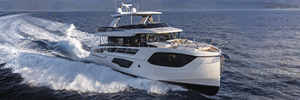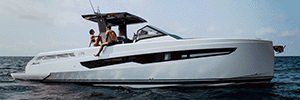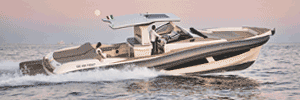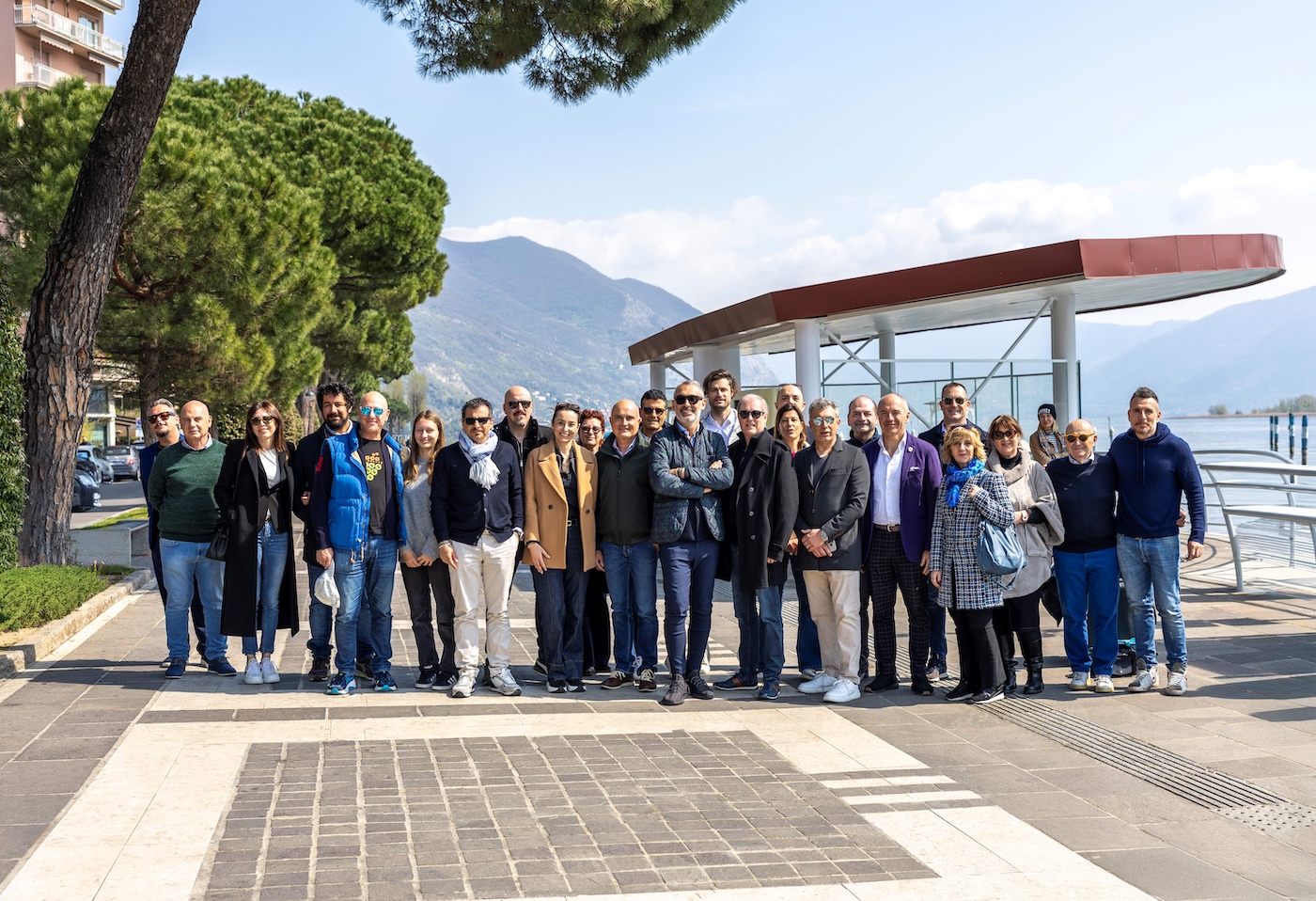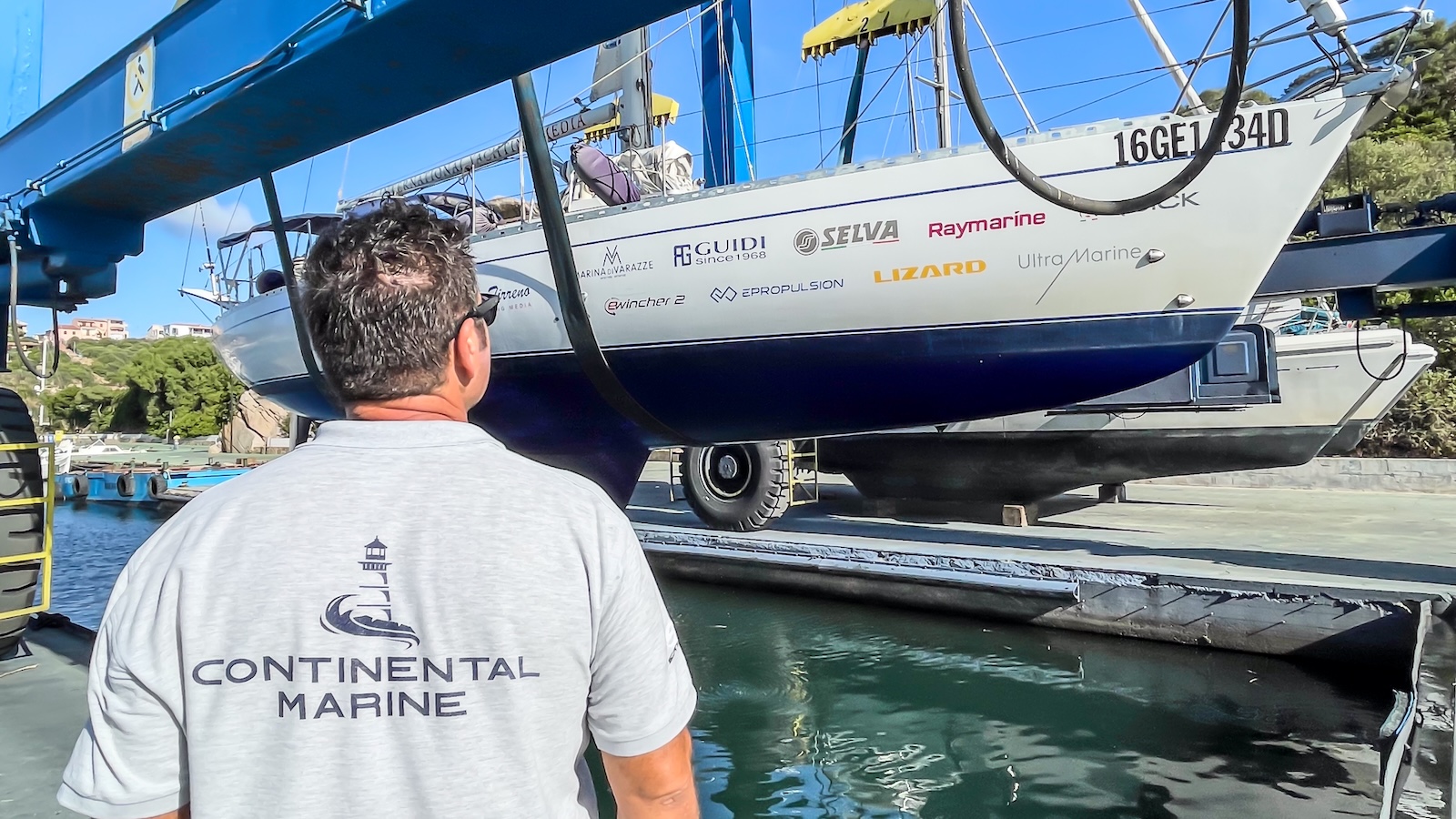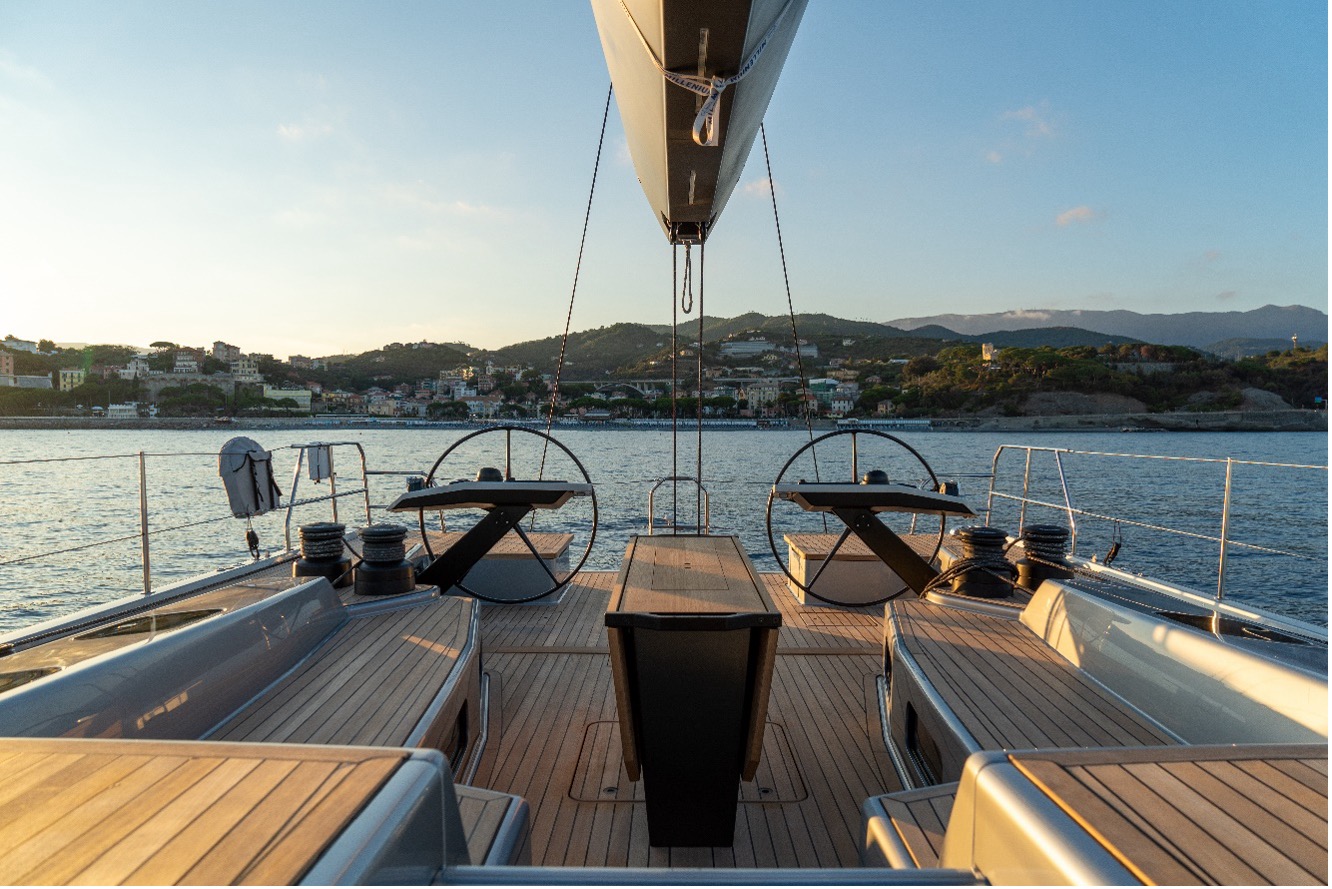Starting to dream before falling asleep is one of the most fascinating pastimes during navigation. I like that very very much; it’s a shame it’s only a short time.
When I finish my 3-, 4- or even 6-hour work or lookout shift, I set my alarm for the three following hours, I lie down on my resting place and start dreaming. Then, I fall asleep. Usually, I unfortunately fall asleep almost immediately and it’s a real shame because my awake dream is very short.
However, I have many other dreams. When I am on a boat, I dream a lot and, when I sleep, I dream even more. Or at least, especially if my shift is 3 hours long, I remember my dreams: I believe that this depends on the fact that all the phases of dream can be completed within three hours.
Shifts
When sailing, it is always essential to have a lookout, who is also responsible for the boat. Usually, if the crew is made up of at least three members, there is a lookout and a person “on standby”; in other words, while the first watches, the other can sleep, keep him company, or do something else but he must always be ready to intervene where necessary.
This way, if you sail with a crew,
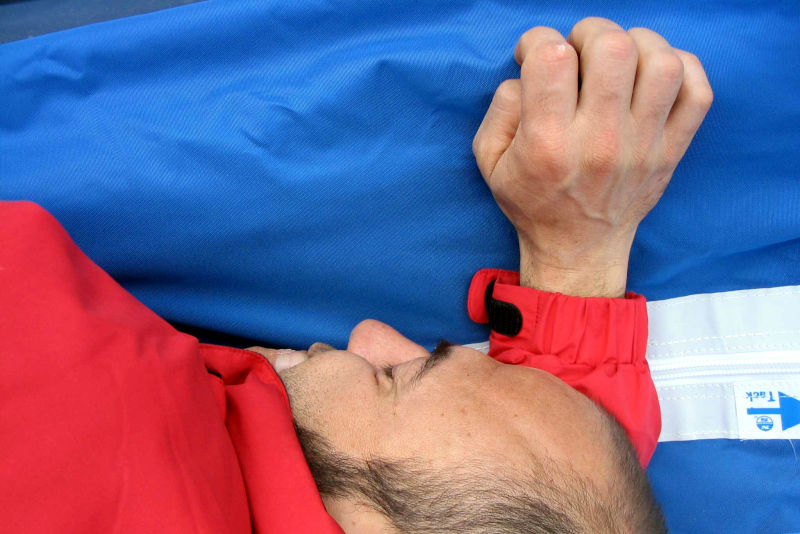
shifts are scheduled in a manner that makes it possible to have a lookout and a person on stand-by while the others sleep. Then, at shift change, the person who worked goes on standby, the second goes sleeping and one of those who slept starts his lookout shift. Shifts rotate all day and all night. Wakefulness and sleep hours depend on the number of crew members available on board as well as on the level of expertise of everyone. It is the task of the captain to schedule well-balanced shifts.
Once, I spent one week taking two night shifts ( from 20:00 to 24:00 and from 04:00 to 08:00) and one in the sun ( from 12:00 to 16:00): the boat had had a failure in the autopilot and, therefore, I took all these shifts at the helm. Another time, I sailed with a captain who loved sleeping and forced the crew to make his shifts: however, when he was awake, he was very nice and we forgot him. Another time, I knew a woman who always cried because she didn’t want to change shift with another. In this case, this was a tactic but it is true that discontent is a frequent consequence of sleep deprivation.
Those who sleep badly or are not trained or have arrived on board already tired can have hallucinations. Auditive ( people can hear voices like madmen or saints) or visual. Once, there was a man in the ocean who believed he was on the beach of Poetto, in Cagliari, Italy. Fortunately, he didn’t dive for a swim.
Training is possible
Shifts cause fatigue and tiredness but, in the end, you always sleep 12 hours a day, even if they are divided into many intervals. The shift I prefer consists of three wakefulness hours and three sleep hours. But I’ll never get used to that. Or, maybe, my training is not good because I always have trouble doing that and, sometimes, I even ask to forfeit my shift in order to recover. When I finally get home, I wake up many times every night, without understanding where I am or I jump out of my bed, in the belief that I haven’t heard my alarm.
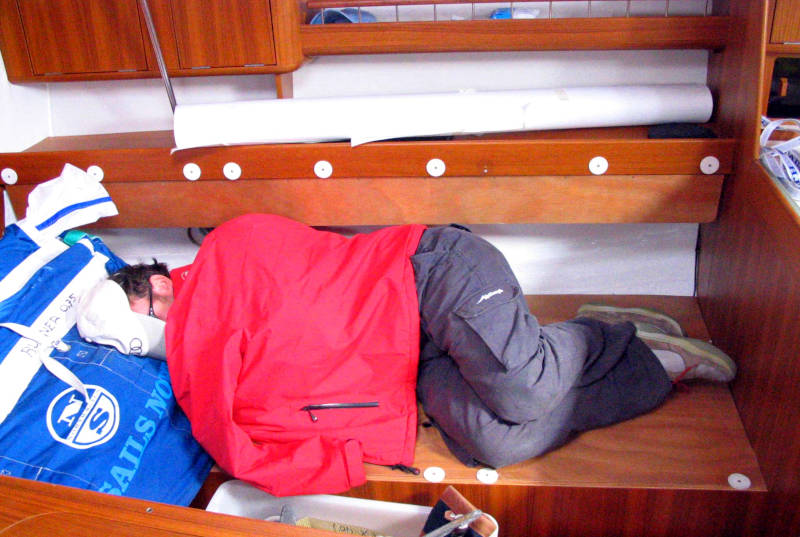
Alarm, too, is important: get one you are sure you can hear but with a sound that doesn’t make you too anxious. Especially if you sail alone or with your partner, it’s very important to respect your timetable. For example, I set my alarm 10 minutes before because I need to take a little time to ask myself who I am, what I am doing there and why I am there. And I also need a little time to get dressed because, if weather is fine and there are many passengers on board, I prefer sleeping quiet and dry.
Well, 10 minutes are important. Lone sailors often sleep only 12-15 minutes every three or more hours and they sleep in front of their navigation tools so that they can see them as soon as they open their eyes. Their position, too, is in precarious balance, which enables them to be woken up by any change in the inclination of the boat.
Training is essential to join, and possibly win, a regatta, sleeping this way. The only time I tried to do that, I was the most intractable person in the world after only 12 hours. Not that my temper is nice!
Polyphasic sleep is much studied and there are many training methods you can try at home but not in the days immediately before your navigation: it’s better to set sail fresh.
Usually,
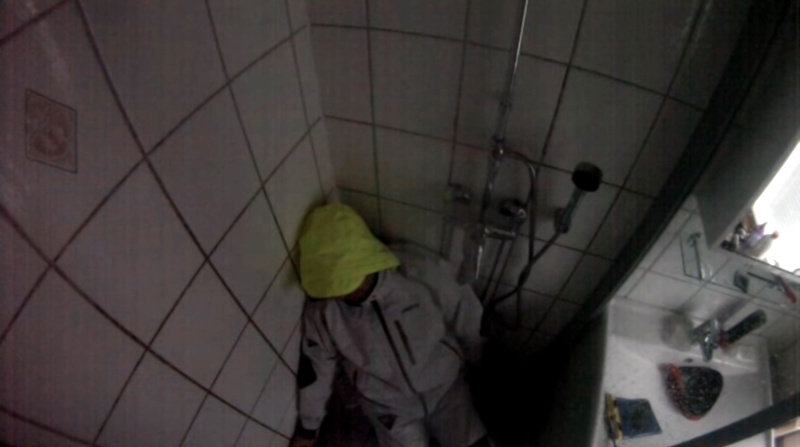
training consists in reducing night sleep gradually and adding night naps so that sleep and wakefulness time distribution can be modified.
Of course, training requires adequate lifestyle and daily organization. Babies, for example, can teach you a lot of things. If you are old, you will certainly benefit from your age while young people can resist until late at night but have many troubles in early morning..
I am a perpetual teenager and I perfectly know that I am hopeless; consequently, I usually have some tries just on the weekends prior to my departure. My domestic tries fail almost always, so I always leave a little nervous.
For a really realistic training, you can try to spend a weekend alternating three hours dressed under a cold shower and three hours sleeping on the floor, in a storage closet and on some wet bags.
This way, however, you might lose your desire to sail.
What to do when you’re awake
I usually need some days to get used to new rhythms, so, in my opinion, the following are the best methods to adopt in long navigation. In the case of a 100-mile race or a short Mediterranean crossing, it’s maybe most convenient to stay awake or take long day/night shifts.
I must remember to eat in the canonical hours and, above all, drink enough: otherwise, I end up having breakfast every 6 hours, every time I wake up, eating carbs and staying dehydrated.
I try not to get intoxicated with caffeine in order to preserve my stomach health and avoid seasickness in case of rough sea. A tea or some Coke is better. When necessary, even an energy drink can be good.
When I sail, I always have light meals because, you know, digestion causes sleepiness and also because, if you are bad, the best solution is to sleep.
The first time, especially if you are not trained or not used to sleep for a long time, it might be very hard. If the sea is rough or the boat is uncomfortable or thin, it’s even harder.
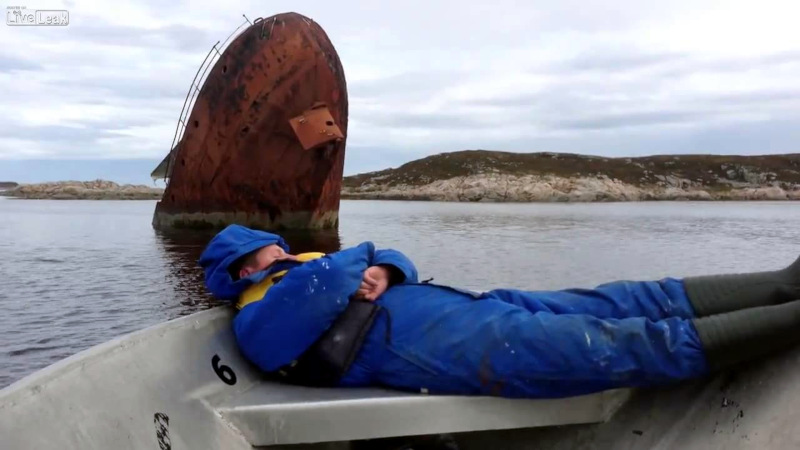
There are people that can’t sleep if the boat heels or crashes against waves and therefore can’t recover their energies during their sleep shift. So, avoid taking sleeping pills, otherwise you’ll end up like Maurizio that has slept almost all the crossing and ruined his holiday.
When the boat heels, I sleep very well and I sleep even better when the boat moves a lot and cradles me vigorously. Am I lucky? Maybe, but I have trouble staying awake if the boat goes on cradling me when I must work.
The solution is to take the helm or, if I am not lucid enough to keep the course, to see the sea and look for signals, ships or animals, turning in all directions and moving on the boat: this awakens attention and facilitates concentration. And, if an obstacle is there, it helps to prevent troubles.
Generally, people focus on the quality of sleep, thinking that the quality of wakefulness is just a consequence. Actually, a good behaviour when you’re awake, without too many efforts or tensions, helps you alternate rhythms sweetly.
And, above all, no heroics, please. If you can handle that, say it. For example, after talking about these things, I’m feeling sleepy now and I wish you a good night.













